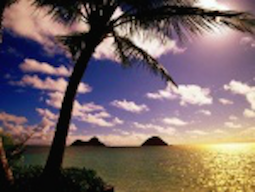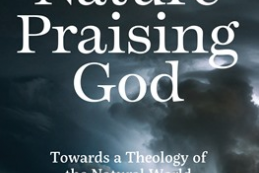New report on eve of Rugby World Cup warns Pacific Islands face brutal climate onslaught

As the Rugby World Cup prepares to kick off in Japan today - the same day a global strike for the climate takes place - a new report has highlighted how three of the smallest countries taking part, Fiji, Tonga and Samoa, are under threat because of the aggressive fossil fuel burning of some of the richest countries, including Australia, the USA, hosts Japan and European nations.
This climate injustice mirrors that within world rugby where these same countries poach the best players from Pacific Islands and yet omit those countries from decision making and have even proposed excluding Fiji, Tonga and Samoa from future major tournaments. Whether it's current players like England's Manu Tuilagi and Wales' Talupe Faletau or greats from the past like New Zealand's Jonah Lomu, Australia's Lote Tuqiri, Samoa's Pat Lam and Fiji's Waisale Serevi, Polynesian players have enriched rugby nations around the world.
The report, World in Disunion, by development charity Christian Aid, shows how the Pacific Islands face a climate onslaught as the world heats up, while richer rugby nations block progress to tackle climate change.
- Hotter and more acidic oceans, due to higher levels of carbon dioxide from fossil fuels, kill coral reefs upon which fish populations, and fishing communities, depend.
- Rising sea levels will swallow land, increase flooding and salinate water supplies.
- The region is also likely to experience more category 3 to 5 storms, such as last year's Cyclone Gita which was the strongest tropical cyclone to hit Tonga since records began.
- Climate change impacts threaten to undermine the islands' economies, detering tourists, making life increasingly tough and driving young people away, putting strain on the countries' ability to field competitive rugby teams.
- Researchers warn of mass migration from the islands as a result of climate change in the coming decades.
- One study suggested that up to 1.7 million people could be forced to move from their homes in the region as a result of climate change in 2050. There will be only eight more Rugby World Cups by that date: fewer than the nine that have already been played.
Former Samoan international flanker Jonny Fa'amatuainu, who had a five-year spell at Bath as well as stints with clubs in Wales and Japan, said: "Our planet faces a climate emergency. July 2019 was the hottest month on record, ever. 2019 is on track to be the hottest year on record, ever. Climate impacts are everywhere we look, from accelerating ice melt in Greenland, increasingly savage hurricanes in the Atlantic and severe droughts in Australia.
"As a Pacific Island rugby player, tackling the climate crisis is close to my heart. My grandparents and other families who lived in a village on the coast in Samoa moved inland two years ago because of climate change.
"The Pacific Islands are the soul of our sport, and we have produced some of the most dynamic and exciting players on the planet. Yet as this report underlines, Samoa, Tonga and Fiji are all facing increased risks from rising sea levels and extreme weather.
"Climate change is a crisis these countries did not cause yet it's a fight they are suffering from the most. It's a fight they need the help of the rugby community to win. As the Rugby World Cup kicks off, world leaders will be in New York for a global climate summit hosted by UN secretary general Antonio Guterres. He has asked governments to do more to protect the most vulnerable and those governments can and should do more.
"Pacific islanders representing other countries at the Rugby World Cup, I urge you to use that platform to help with the climate challenge."
The report also shows that the Pacific Islands are bearing the brunt of climate change but have done the least to cause it, while other World Cup nations are some of the most polluting on the planet.
Fiji produces just 1.6 tonnes of carbon dioxide per person, Tonga 1.3 and Samoa 0.7 while Australia produces 16.5, the USA 15.7, Russia 12.3, Japan 10.4 and Ireland 8.2 tonnes. This means the average Australian produces 24 times as much CO2 as a Samoan. The World Cup kicks off on September 20th between two of the worst offenders, Japan and Russia.
And despite their huge carbon pollution which has led to the climate crisis, these countries are failing to clean up their act. According to an evaluation of the competitors' climate plans by Climate Action Tracker, a consortium of climate and energy research organisations, all of the 12 top polluters playing in the tournament have insufficient plans for cutting emissions.
This climate injustice was laid bare last month at the Pacific forum meeting between leaders from nations in the region. After the summit nearly collapsed due to Australian intransigence over its polices on coal and climate change, the Australian deputy prime minister, Michael McCormack, claimed Pacific island nations would survive by "picking our fruit".
He said: "I also get a little bit annoyed when we have people in those sorts of countries pointing the finger at Australia and say we should be shutting down all our resources sector so that, you know, they will continue to survive." He added: "They'll continue to survive because many of their workers come here and pick our fruit."
Report author Dr Katherine Kramer, Christian Aid's Global Climate Lead, said: "Climate change is the ultimate injustice issue and nowhere is that captured more clearly than among the nations taking part in the Rugby World Cup.
"The island nations in the Pacific are some of the most vulnerable in the world and they have done almost nothing to cause their plight. The main culprits for causing the climate crisis are European nations as well as major coal burners like Australia, the USA and Japan. Not only have they caused the current dire situation, but they are dragging their feet on making the needed transition to a zero-carbon economy
"The theme song for the Rugby World Cup is 'World in Union'. The lyrics say 'We must cross rough seas, we must take our place in history and live with dignity.' For the vulnerable in the Pacific islands rough seas are an increasing threat to their ability to live with dignity. What we need is for leaders in rich countries to truly take their place in history and commit to slashing their CO2 emissions at the UN climate summit in New York."
The intersection of climate and the World Cup has already hit the news with a huge tropical storm, Typhoon Faxai, tearing through Tokyo, causing death and devastation. Nearly a million people were left without power. The storm delayed the Australian rugby team's departure for the World Cup and left the England team stranded in Tokyo airport.
Despite the shamefully slow progress from some countries in tackling climate change, world leaders will have an opportunity to up their game next week at a special summit in New York hosted by UN Secretary General Antonio Guterres. The Climate Action Summit takes place on September 23 with Guterres calling on leaders to strengthen their pledges.
Patricia Mallam a Fijian campaigner who works for climate charity 350.org Pacific said: "Regardless of the rather indigent opinion that the Australian deputy prime minister has about the very people who work so that Australians have food on their table, as an activist against the climate crisis, I choose to focus on the life-threatening issue here, which is inaction by countries who continue to support the fossil fuel industry."
"It is absolute injustice and blackmail to continue to support coal mining operations and then show up to a regional meeting offering aid as a means to compensate for it."
Read the full report here: www.christianaid.org.uk/resources/about-us/world-disunion-climate-change-and-rugby-world-cup


















